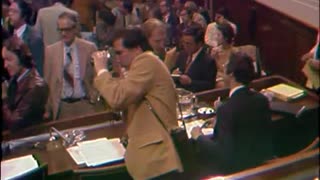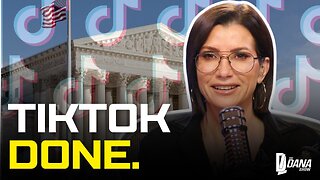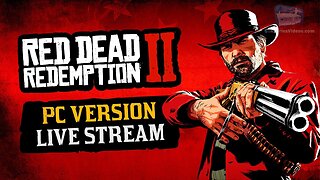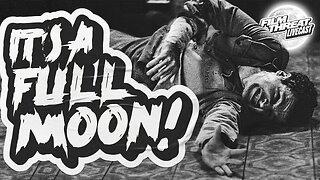Premium Only Content

Facing Down Evil: Life on the Edge as an FBI Hostage Negotiator (2006)
Crisis negotiation is a law enforcement technique used to communicate with people who are threatening violence[1] (workplace violence, domestic violence, suicide, or terrorism),[2] including barricaded subjects, stalkers, criminals attempting to escape or evade arrest, and hostage-takers.[3] Crisis negotiation is often initiated by the first officer(s) on the scene.[2]
History
Modern hostage negotiation principles were established in 1972 when New York City Police Department detective Harvey Schlossberg, also a psychologist, recognized the need for trained personnel in crisis intervention. Schlossberg had worked on the David Berkowitz ("Son of Sam") case, and had instituted other psychological principles in police work, including psychological screening of police applicants and the use of hypnosis in suspect/witness interviews.[citation needed] Schlossberg's negotiation strategies were used during the 1973 Brooklyn hostage crisis and were crucial in ensuring the peaceful resolution of the standoff.[4]
The first hostage negotiators were often deployed as elements of police tactical units and merely created a diversion while they deployed. In modern usage, while sometimes acting independently, hostage negotiation teams are often deployed in conjunction with police tactical units, with the tactical teams only sent in should negotiations fail.[citation needed]
The Federal Bureau of Investigation Crisis Negotiation Unit (which developed the Behavioral Change Stairway Model[5]) and Singapore Police Force Crisis Negotiation Unit are examples of specialized units trained in these techniques.[6]
Behavioral Change Stairway Model
A Mercedes-Benz Sprinter used by the Federal Bureau of Investigation's Crisis Negotiation Unit
One specific model developed by the FBI is the Behavioral Change Stairway Model. Police negotiators that follow this model work through the following stages in order:[5]
Active Listening: Understand the psychology of the perpetrator and let them know they are being listened to.
Empathy: Understand their issues and how they feel.
Rapport: When they begin to see how the negotiator feels, they are building trust.
Influence: Only once trust has been gained can solutions to their problem be recommended.
Behavioral Change: They act, and maybe surrender.
It is considered to be important to work through these steps in order, and not to try to effect behavioral change before rapport has been established.[7]
References
Strentz, Thomas (2006). Psychological aspects of crisis negotiation. CRC Press, ISBN 978-0-8493-3997-4
Jonathan Greenstein (2011). "Hostage Negotiations for the First Responder (Missouri Police Officers Standards and Training Course)".
Defense Information Access Network, United States State Department (1987). Hostage negotiation: a matter of life and death. DIANE Publishing, ISBN 978-0-941375-01-6
Reub, Emily (September 10, 2012). "A 1973 Hostage Situation, Revisited". The New York Times. ISSN 0362-4331. Retrieved March 11, 2017.
Gregory M. Vecchi; Vincent B. Van Hasselt; Stephen J. Romano (2003). "Crisis (hostage) negotiation: current strategies and issues in high-risk conflict resolution".
Greenstone, J.L.(2005). The elements of police hostage and crisis negotiations: Critical incidents and how to respond to them. Binghamton, New York: The Haworth Press. Currently under Taylor and Francis Publishing Group.
""Talk To Me": What It Takes To Be An NYPD Hostage Negotiator". 18 August 2014.
External links
“Crisis” or “Hostage” Negotiation? - The Distinction Between Two Important Terms FBI
Hostage Negotiations for the First Responder - Missouri POST (Police Officers Standards and Training) Approved Technical Training Course: © 2011 Jonathan Greenstein and Creative Management Consultants
Hostage Negotiations Panel Discussion
Hostage Negotiations by Jonathan Greenstein
Hostage Negotiations Panel Discussion at CSI
Categories:
Law enforcementNegotiationHostage negotiators
The Federal Bureau of Investigation Crisis Negotiation Unit (CNU) is the part of the Operational Support Branch of its Critical Incident Response Group responsible for the FBI's Crisis Negotiation Program. The mission of the CNU is fourfold, consisting of operations, training, research and program management.
Activities
The CNU maintains an immediate - 24 hours a day, 7 days a week - operational response capability to conduct and manage on-scene negotiations during any significant crisis event worldwide in which the FBI is involved. The FBI becomes involved internationally when the victim is a U.S. citizen or there are demands made against the U.S. government. As part of this mission, negotiators deploy overseas to assist in kidnapping situations involving U.S. citizens.
The FBI is considered the negotiation arm of the United States government for international incidents. Since 1990, the CNU has been involved in over 300 such incidents worldwide. CNU negotiators also routinely provide telephonic assistance to both FBI field negotiators and domestic police negotiators during domestic crisis situations.
The FBI has approximately 340 crisis negotiators in the 56 field offices. The CNU is responsible for managing these assets and providing whatever training and equipment is necessary for the field office negotiators to successfully resolve crisis situations.
The CNU is staffed by a Unit Chief, five Supervisory Special Agents and four support staff. The unit is based with all other Critical Incident Response Group units at the FBI Academy in Quantico, Virginia. The CNU has adopted the Latin phrase pax per conloquium, "resolution through dialogue," as its motto.
Training
The CNU is responsible for the initial training of all FBI negotiators, which includes a two-week national negotiation course conducted at the FBI Academy. The unit also provides advanced and periodic update training to FBI and other law enforcement negotiators at the FBI Academy, regionally and internationally. Exchange programs are in place with British, Canadian, Australian, Israeli, Irish, German and South African law enforcement agencies. The CNU also provides crisis negotiation concepts to FBI decision-makers and selected law enforcement managers in appropriate forums.
Initiatives
The CNU is engaged in an array of research projects, case studies and other initiatives targeted at expanding the FBI's capabilities to assess, manage and successfully resolve critical events. An integral part of this research effort is the Law Enforcement Negotiation Support (LENS) System. LENS is a computer-based project developed to provide all law enforcement negotiators with additional tools to help resolve crisis situations.
Part of this effort is a research project known as the Hostage Barricade Database System (HOBAS). HOBAS was undertaken to gather and analyze statistics on hostage, barricade, and/or suicide incidents in the United States. There are currently over 5,000 incidents in HOBAS, contributed by law enforcement agencies in the U.S. and Canada.
The CNU is available to assist any law enforcement negotiator with operational issues around the clock, seven days a week.
Notable alumni
Gary Noesner author of Stalling For Time.[1]
Chris Voss author of Never Split The Difference, adjunct professor at Georgetown University's McDonough School of Business, CEO at the Black Swan Group Ltd.[2]
References
Shaw, Kerry (Aug 25, 2016). "I Was a Crisis Negotiator for 23 Years. Here's What It's Like to Talk Down an Armed Hostage Taker". The Trace. Retrieved Dec 13, 2016.
Staff writer. "Chris Voss - Faculty Profile". USC. USC. Retrieved Dec 13, 2016.[permanent dead link]
External links
"Crisis Negotiation Unit". FBI.gov. FBI. Archived from the original on 2008-01-09. Retrieved 2008-01-12.
vte
Federal Bureau of Investigation
Categories:
NegotiationFederal Bureau of Investigation
-
 37:59
37:59
The Memory Hole
21 days agoNixon Impeachment Hearings Day 1 (1974-05-09)
592 -
 LIVE
LIVE
Dr Disrespect
3 hours ago🔴LIVE - DR DISRESPECT - WARZONE - CRAZY CHALLENGES
4,399 watching -
 LIVE
LIVE
Scammer Payback
18 minutes agoCalling Scammers Live
85 watching -
 LIVE
LIVE
The Dana Show with Dana Loesch
2 hours agoTHE END OF TIKTOK | The Dana Show LIVE On Rumble!
432 watching -
 1:22:57
1:22:57
The Criminal Connection Podcast
3 hours agoPADDY DOHERTY: Dougie Joyce RESPONSE! Bare Knuckle Fighting, Sausage Fests & Assassination Attempts
8 -
 1:57:23
1:57:23
The Charlie Kirk Show
2 hours agoConfirmation Mania: Day 4 + AMA | Comer | 1.17.2025
115K25 -
 LIVE
LIVE
SIEFE
2 hours agoRED DEAD REDEMPTION 2 LIVE!
165 watching -
 2:08:26
2:08:26
Film Threat
15 hours agoWOLF MAN + PETER PAN'S NEVERLAND NIGHTMARE + MORE GORE! | Film Threat Livecast
19.9K -
 34:28
34:28
Tudor Dixon
4 hours agoHypocrisy and Accountability in Politics with Sen. Markwayne Mullin | The Tudor Dixon Podcast
32.5K3 -
 1:39:18
1:39:18
The Shannon Joy Show
5 hours ago🔥🔥Live EXCLUSIVE With Edward Dowd: Trump CANNOT Stop The Worldwide Economic Collapse🔥🔥
11.9K7